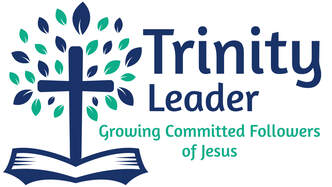 On Friday, the Supreme Court of Canada ruled in favour of Physician Assisted Death to mentally competent but suffering and "irremediable" patients, giving Parliament one year to enact legislation to conform to its ruling. An event like this necessitates that we reflect on our role as Christians and the Church within culture. Christians and the Church have a unique responsibility and right to engage with culture in a two-fold way: to critique culture and to offer a different way forward. The first important way that the Church engages culture is by critiquing it. While the temptation in critiquing society, government, or individuals is to focus on the negative we ought to first affirm those things which are positive (and every issue no matter how distressing has something which can be affirmed). There is also the responsibility to speak out against those things which are not so positive within society: speaking out against injustice and standing up for the voiceless. As we speak into culture, engaging society and individuals in a meaningful conversation we must offer a new and different way forward. It is one thing to simply discuss the issues but quite another to offer a different worldview to frame discussion and action. As we speak into culture, engaging society and individuals in a meaningful conversation we must offer a new and different way forward. That is where we as Christians and the Church have a different worldview to present: one based on life. We talk a lot about life, primarily eternal life with our God which is our hope, longing, and destiny. Too often this discussion of life is disconnected from our everyday experience of life. In John 10:10 Jesus says that He came “that they may have life and have it abundantly.” We are quick (rightfully so) to apply this to eternal life with Jesus but the promise of life abundant is for the here and now as well. Jesus came not just for a future life but for a rich, full, joyful life presently, one marked with hope for the future. And so it is good and important that we affirm and speak life. That is why we are here! Interestingly enough, both sides on the issue of Physician-Assisted Death appeal to the notion that life is precious. One side of the argument says, “Life is precious and so it should be valued to its natural end” while the other side argues, “life is too precious to endure pain/suffering.” While the issue clearly is about life, it is also about suffering. No one likes or wants to suffer. In fact, we often search out quick fixes to end any kind of suffering even if it is just a minor annoyance. As much as we try to avoid or get rid of suffering, it is still present. We are never told that we will have a life free of suffering. It is our cultural opinion that we have the privilege not to suffer. When we look to Scripture, we are reminded of the root of suffering: sin entering into the world as a result of humanity’s disobedience to God. Pain, brokenness, heart-ache, and death enter the world which becomes a place in need of hope. Many ask the question, ‘how can a good God allow suffering?’ There is no easy answer to that question, and no suitable answer if you or a loved one is suffering from a debilitating disease or is in chronic pain. The only solution that I have to suffering is Jesus. In Jesus, our God entered the world to endure pain and suffering. He died a gruesome and painful death. In His life, Jesus entered into humanity’s suffering and pain and by His death offers hope. Jesus enters into our suffering, giving us strength and encouragement. He calls us closer to our God who knows us, made us, and suffers with us. And so, what can we as Christians and the Church do as we stand for the sacredness of life, including life in the midst of suffering? We are to offer a different way forward: 1. Pray. Pray for God’s Kingdom to come powerfully bringing healing to sick, wholeness to the broken, and restoration to the outcast. Pray for God’s Kingdom to come and His will be done as earth as in heaven. 2. Advocate for life. Write politicians, your MP and MLA; the Premier and the Prime Minister. Encourage others to do so as well to stand up for the value of life even when there is minimal perceived value. 3. Get involved. It is one thing to speak against Physician-Assisted Death but another to put the words into action. The suffering need love, they need the hope that only Jesus can offer. Speak life into the suffering, hurting, pained, and broken. Support palliative care efforts which give dignity in the midst of suffering and death. Photo Attribution: Andrea Mantegna [Public domain or Public domain], via Wikimedia Commons
0 Comments
 As we’ve been looking at the opening scenes in the book of Genesis, one of the important things we’ve done is to take some time to think about who is God. It may not seem like it is worth spending much time on. Perhaps we think we’ve got it all figured out already or that God doesn’t really matter that much. In fact, I would be willing to bet that some of us would be willing to keep God out of our lives until it is convenient or we think He is needed. I’ve had the privilege of looking closely at Genesis 1-11 over the past several months (spending time in the Word is one of the greatest blessings of what I do). As I have read the text and commentaries about the text, I have been reminded repeatedly about why I love and serve God the way I do. Genesis clearly paints a picture of a loving, interactive, all-powerful God who longs for relationship with all He has made. A lot of time could be spent wading through all the characteristics of God which are presented in Genesis. But the one that I can’t get over is God’s interaction with His creation. Some much of what we hear about God or gods points us in the direction of a God who doesn’t want to be involved in the daily grind of our life. And yet, the God of Genesis is shown to be active in each day of Creation and in everyday since. I need a God who is all powerful to be active in my life because too often I come up short. I need a God who is loving because too often I am not. I need a God who is relational because too I would shrink back to my own life and only care about my own wants & needs. The God we read about in Genesis is not a myth, fairy-tale, or an invention of human imagination. This God is real, active, sustaining, loving. In short, thinking about God involves more than just using your mind. It is about an encounter with the living God; an encounter that aims to be life changing. Photo: Used under Creative Commons License: CC0 Public Domain. http://pixabay.com/en/thinker-thinking-person-idea-28741/
 If you follow US news, you’ll be familiar with the happenings in Ferguson, Missouri, a normally sleepy suburb of St. Louis. It is there where a police officer shot a man following an apparent scuffle. Seems innocuous enough until you fill in some details. The shooting officer was white while the young man who was killed was black and apparently had his hands in the air while being shot. Protests have been going on for the better part of two weeks which have been focused on the injustice done presumably because of the young man’s race. The protesting group, which is largely black, is outraged that the white police officer could get away with killing this young man. Racial tension has been the common theme when discussing the events that occurred in Ferguson, in large part because that is still a real issue in America (something Canadians can’t fully understand or appreciate). The focus on race is really a focus on the visible things that separate us. Each of us consciously or unconsciously focus on the things that unite and divide us. You more readily gather with like-minded people, you start a conversation with someone when you notice they have the same shirt as you, or you acknowledge that guy driving down the road in the same car that you have. We find comfort in being surrounded by people who are like us, there is a built in sense of trust when you encounter someone who looks, thinks, talks or acts similar to you. Experience tells us this happens all the time, science supports this gathering of like things, and Scripture points to this as well. When we open the book of Genesis we see that once there was openness and commonality within human relationships which didn’t last long. Soon sin, which is a fancy word for separation, entered the scene and people became divided. Wars were fought between people groups and dividing lines were drawn around food, traditions, appearances, and the like. With sin came a division of people. One place in Genesis where people were working together was the building of the Tower of Babel. In this instance, unity of the people was not to be celebrated because they were not working together to further their relationship with the One who mattered, God their Creator, but to make their own name great. As a result, God divided the people into different language groups so that they could no longer understand each other. When we think about the issues of life that seem to be as simple (in actuality as complex) as the colour of our skin, or the different language we speak, we need to remember the deeper reason for the divide. It is a direct result of our disobedience, our deciding we want to live our own lives as we see fit apart from God. There is much more at play than (simply) race in the events unfolding in Ferguson. Ferguson is just a reminder of the bigger problem in our world, separation from God which leads to brokenness of relationship and separation from other humans. It would be nice if there was an easy way to fix the systemic brokenness in the world, to heal the hurts of our differences. Apart from Jesus and His coming again to re-create the world, everything else will just be a Band-Aid solution. Photo: Used under Creative Commons License: https://creativecommons.org/licenses/by/2.0/ No changes made. Image link: https://www.flickr.com/photos/notionscapital/14918918396/in/photostream/
 We in the church are pretty good at the ‘soft sell,’ the advertising approach that presents an easy and friendly message in the hope you’ll respond and buy something. “Grace is free! Come and get it!” “You’re welcome here and we’ll make no demands on your life.” “Come as you are to meet new people and get great coffee.” The church has mastered the soft sell. All the lines are memorized and put out there, just waiting for someone to come along and find us irresistibly cozy and non-demanding. “We want you, no strings attached.” But look around, how is this approach working? We thought that all we had to do was say the things everyone wanted to hear and they would come streaming in our doors. The fact of the matter is we like to emphasise the privilege of the Gospel without mentioning the responsibility of the Gospel. We emphasise God’s free gift of Jesus Christ for all who believe (which is good and important) but hardly make mention of the fact that we are to be sent out to make more disciples. What results is the misconception that all I have to do is make an intellectual consent to Jesus once in my life and I am automatically heaven bound. But Christianity is harder than we make it out to be. Absolutely we need to be about the free gift of Jesus for anyone who trusts in him. But that is not where the message is meant to stop. Jesus didn’t just gather a group of people around himself, waited for them to say “I trust you” and then leave them. No! He discipled them, mentored them, shared life with them, and yes, even challenged how they were living and thinking. We are caught up in making a mental decision for Christ that we aren’t fulfilling the Gospel commission to make disciples, to follow Jesus with our whole lives. This is the part that the church has been weak on for a long time. We are caught up in making a mental decision for Christ that we aren’t fulfilling the Gospel commission to make disciples, to follow Jesus with our whole lives. We aren't walking with each other, mentoring each other, or challenging each other onward to a Christ-centred life. We’re content to leave people as they are as long as they’ve said ‘yes’ to Jesus. But thanks be to God that Jesus isn’t content to leave us as we are as long as we’ve said ‘yes’ to Jesus. He desires so much more for our lives that we would have an abundant and joyful life with Him even if it doesn’t look like we think it should. The truth is following Jesus is harder than we make it seem. Everyone in the church (and outside of the church) struggles, has doubts or questions. Can’t we just be truthful and say that Jesus wants more from us than merely a part of our minds, that He wants (and demands) our whole lives? It’s not a popular message, it won’t always make people feel good about themselves, but it is the message that you, I, and the whole world needs to hear. Jesus wants all of you, even all the way to giving up your life for His sake. Then Jesus said to his disciples, “If anyone would come after me, he must deny himself and take up his cross and follow me. For whoever wants to save his life will lose it, but whoever loses his life for me will find it.” Matt. 16:24-25 Picture: Public Domain, CC0. Text added. Website: http://pixabay.com/en/couch-sofa-settee-furniture-blue-147558/
 In just a few short weeks my family will be taking a couple weeks of holidays going to beautiful British Columbia. I am really looking forward to this time of seeing family and friends and just being about to have some time away. It is not that I don't like to work in fact, I love what I do and the people I get to spend time with. It is just that as much as we have been programmed to work, we've also been programmed to rest (see Genesis 1-2). Some times, the resting part comes easy like looking ahead to vacation time or counting down the days until retirement. But more often than not, working is what comes more readily to us. We like the idea of rest but we feel compelled to work. I don't think it is uncommon for many of us to work 50-60 hours a week without even knowing it (I am guilty of this on occasion). The mentality of society says that we have to keep going, keep keeping up with everyone else around us and the only way to do that is by spending more time working. I would argue that we are being conditioned to work 24/7 especially now that we can carry our work in our pockets wherever we go (who's not guilty of checking a work email just before you crawl into bed?). Unfortunately, this working mentality has made its way into the church. The most obvious way it presents itself is in the amount of time we have to give to Jesus. Where we once were able to give a couple nights a week to church activities, we are now find it hard to give an hour (and only an hour!) to the Lord on Sunday mornings. The bigger issue might be the mentality of working that has crept into our churches. We have bought into the notion that we always have to be doing something--there's always more work to be done (and in some ways, this is true). But this expresses itself in the push for new programs, new ways of doing the service, always doing something to try to attract more people. This push to keep doing is leading us all to fatigue. The few that are very active in the church are stretched to capacity while those who are not very active think they can't possible measure up. We have fallen into the trap of a works based religion. We tell ourselves (usually subconsciously) that if we aren't actively sharing/talking about Jesus every minute of every day then we are failing; if we aren't doing all that we can to build/save the church then we are not worthy followers of Jesus We have fallen into the trap of a works based religion. But the good news is that is not what the church is supposed to be about! Sure, in Matthew 28 Jesus tells his disciples to Go and make disciples... we always focus on the verbs in that verse which make it sound like the mission is up to us. When we make that our focus we forget that Jesus declared that he has all authority in heaven and on earth and that he will be with us always (in the person of the Holy Spirit pointing us to Christ). It is not up to us to convert the world or to fill the church. It is the Holy Spirit's job to call the world to Christ using His hands and feet- the body of Christ, the church. The assurance is in the power authority of Jesus as expressed in the Spirit who sustains the church and keeps it focused on Jesus Christ. Instead of striving and working to try to 'save the church' simply listen (which requires we put the work aside for a time). Listen for the voice of God through the Holy Spirit and be ready to move where He leads. Image: Public Domain: CC0 http://pixabay.com/en/man-person-business-businessman-319286/
 I'll share some reflections on the past week which my family and I spent at Camp Simmie. It was a refreshing week for me: the people there are awesome, the kids had a blast, the worship was Spirit-filled, and the speakers were out of this world (I may be a little biased). During the morning study session, I led us in thinking about the hope that we have as God's people. It is a pretty basic concept but it is one that we need to return to constantly. All we have to do is look around us at the world in which we are living to get discouraged. It could be the pile of bills waiting to be opened and paid, a sickness of a family member that is causing them pain and discomfort, or just the everyday grind of life. We were reminded this week that these things were not in God's original design (they are a result of humanity's continued rejection of God's working in us) and that they will continue until Jesus comes again to make God's dwelling place with humanity. But we were also reminded that there is hope in the midst of disconcerting times. In fact, God alone is the only source of lasting hope that we can have! The next few posts will draw out the idea of our hope being rooted fully in God. Our hope is in God the Father's Faithfulness. When you are reading Scripture, one of the most prominent themes is that of God's action on behalf of His people. The Bible is a story of God's faithful work in His people. The Bible is a story of God's faithful work in His people Go ahead and read it! Time and time again, you'll see stories of God's promise and action on behalf of the people He created and loves. Turn to Genesis 21:1 and you'll see God fulfilling the promise He gave to Abraham and Sarah that they'd have a son in their old age. Turn to Genesis 45:4-8 and you'll hear of God's plan for feeding His people in the midst of famine, through the 'disposal' of the despised brother Joseph. The whole book of Exodus is one story after another of God's action in bringing His people out from under the oppression of slavery in Egypt. (Especially Exodus 15 where the story is retold in song). There are countless other examples that'd I'd encourage you to take note of because we have a God of promises and covenant! The point of having a collection of such stories is that we need to be reminded of God's faithfulness, His constant action on behalf of His people, His unending love for us in the good times and especially in the bad. We are quick to forget and quick to complain. God's Word constantly calls us back to trust in God's all-sufficient action in our lives. I'd encourage you to read Psalm 136, which is a retelling of the work of God for His people. After reading it, perhaps you'd find it helpful to write your own Psalm with the refrain, "His love endures forever." Fill in the blanks with your story of remembering God's actions toward you. Here is a template for you to print off, fill out, and keep in a prominent place to remind you of God's faithful work in your life. Image: Public Domain, http://pixabay.com/en/rainbow-nature-horizon-colors-110953/
 I've been taken with the idea of generosity recently; it seems to be popping up all around me (there's a lot that could be said but here is a small snapshot of my thoughts). Specifically, what does it mean to be a generous person? There are many possible ways to define generosity. Everyone would agree that helping a friend out in time of need is generous or volunteering at the local animal shelter or even donating money to Tele-Miracle to help sick kids. All of those are important and worthwhile ventures to be involved in. But I've been stuck on the question of why we are motivated to give to these ventures. At a basic level, I think we act generously to others because that is how we ourselves would hope to be treated when the time comes that we need the assistance of others. There is a certain sense of helping with the thought of what we might get in return; whether we are totally conscious of this or not. Deeply connected to this symbiotic relationship is the feeling we get when we help others— a self-fulfilling satisfaction. We may not always admit it but it feels good to help out someone else. We are proud of what we have done.
All of this raises the question of how we are supposed to act as followers of Christ. Do we give generously of our time, money, and resources when it is convenient for us? When we can get something in return? When it is done out of pity or with self-righteousness? NO! We are called to give generously in a selfless manner for no other reason than the love of Christ which dwells in us. Our generosity is to be modeled after God's generosity who continually offers a fresh start through repentance, who showers undeserved blessings upon us, and who gave of Himself sacrificially on the cross for the sake of the whole world. A dear Scripture verse bears this truth: "For God so loved the world that he gave his one and only Son, that whoever believes in Him shall not perish but have eternal life" (John 3:16) God gave sacrificially for everyone knowing that His gift would be rejected and mocked by some but received by others. He gave not with mind to what He will get in return but out of self-giving love for us who He made in His image. It is His love that characterizes this gift. It is my prayer that we may be challenged to a selfless generosity spurred by God's self-giving love as we see those around us as fellow image-bearers of God and show them love as God Himself loves all. Before coming to Leader, I never really had an appreciation for rain. Sure, I lived in a region that regularly receives rain, I mean a ridiculous amount of rain. We're talking somewhere around 170 days of the year where there is measurable precipitation to the tune of 60" (yes, 5 feet!). When you are inundated by rain, you have a tendency to take it for granted and even complain about it. But in a place like this where everything revolves around and is dependent on moisture we eagerly await and even long for the life giving rain. During this most recent rainfall, I could see people's expressions change. Even though it was dark and gloomy outside, people were rejoicing in the water falling from heaven. That got me thinking about our relationship with God. In many places throughout Scripture, the Lord is referred to as life-giving water, most dramatically in John 7 where He invites, "Let anyone who is thirsty come to me and drink. Whoever believes in me, as Scripture has said, rivers of living water will flow from within them." Jesus is repeating the Father's invitation from Isaiah 55:1, "Come, all you who are thirsty, come to the waters." In North America, we are surrounded by a plethora of options with which to encounter God. There are too many Bible translations to count, churches on every street corner to meet every possible person (for better and worse), and 'spiritual gurus' permeating the media. We are inundated with access to God. And yet, it seems that we take God for granted more and more everyday. God invites us to come. To come to Him and drink. To come to him and receive the Spirit which is the streams that flow out from us. The invitation is there, we are inundated by it. Let's not take it for granted; instead, let's celebrate each time the Spirit fills us as we are drawn back to the life-giving relationship with Jesus our Lord. Image: Public Domain. http://pixabay.com/en/rain-raindrops-window-glass-72914/
On Sunday June 8, we celebrated Pentecost Sunday. It is the day marking the birth of the church in the power of the promised Spirit of God. It is a day of celebration; a day of rejoicing in the powerful potential of the Church of Jesus Christ which is equipped to speak words of truth, healing, and life to the whole world as nothing else can. It is also a day in which the church prays for a fresh renewal, an outpouring of that same Spirit which came at Pentecost to be made real and alive to us today.
However, the power, the renewal, the promise of life isn't restricted to just Pentecost Sunday. It should be our desire to receive a fresh outpouring of the life giving Spirit everyday. Our church year helps to remind us of the importance of having this prayer at the centre of our lives. Until the middle of November we will be in the Season of Pentecost (only interrupted by a few Festival Sundays). Spending so much time in the Season of Pentecost, also called Ordinary Time, can leave us feeling complacent and well, ordinary. Much of the season takes place during the summer months when church activities slow down and many people are away on holidays; it can start to feel kind of dead around here. And yet, over the next 23 Sundays, we will focus on the life of the church; its hope, its promise, its mission in the world. The excitement and power of Pentecost Sunday carries forward to each day of our lives as the Holy Spirit draws us into a new relationship with God the Father through Jesus Christ. So while we may be in the season of Ordinary Time, it is my prayer that our time would not just be ordinary but that it would be a season of refreshing, renewal, and of life as we set our eyes on Jesus eagerly following where He leads. |
AuthorPastor J-M shares some occasional thoughts and musings on our life together as followers of Christ. The views are his own. Archives
October 2023
Categories
All
|
- Home
- About
-
Learning & Growing
-
Sermons
>
- 1 Samuel
- Lent
- Spiritual Conversation
- Advent
- 1 Timothy
- Single Messages
-
Older Sermons
>
- Judges
- Joshua
- Galatians
- Lamentations
- 1 Peter: Living Hope
- Acts
- What Does This Mean?
- Gospel Identity: Gospel Living
- Nehemiah
- Questions of Faith
- Proverbs
- Hebrews
- Sermon on the Mount
- 1 Thessalonians
- Psalm 23: Walking with the Lord
- I Believe: The Apostles' Creed and a Living Faith
- 1 Corinthians
- Difficult Questions
- Genesis: God's Endless Faithfulness
- The Lord's Prayer
- Mark
- Genesis
- Bible Studies >
- Kids
- Blog
-
Sermons
>
- Worship Videos & Resources
- Contact
- Home
- About
-
Learning & Growing
-
Sermons
>
- 1 Samuel
- Lent
- Spiritual Conversation
- Advent
- 1 Timothy
- Single Messages
-
Older Sermons
>
- Judges
- Joshua
- Galatians
- Lamentations
- 1 Peter: Living Hope
- Acts
- What Does This Mean?
- Gospel Identity: Gospel Living
- Nehemiah
- Questions of Faith
- Proverbs
- Hebrews
- Sermon on the Mount
- 1 Thessalonians
- Psalm 23: Walking with the Lord
- I Believe: The Apostles' Creed and a Living Faith
- 1 Corinthians
- Difficult Questions
- Genesis: God's Endless Faithfulness
- The Lord's Prayer
- Mark
- Genesis
- Bible Studies >
- Kids
- Blog
-
Sermons
>
- Worship Videos & Resources
- Contact



 RSS Feed
RSS Feed